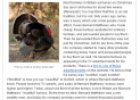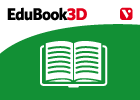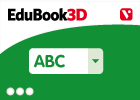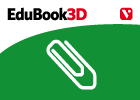Cargando...
Recursos educativos
-
Nivel educativo
-
Competencias
-
Tipología
-
Idioma
-
Tipo de medio
-
Tipo de actividad
-
Destinatarios
-
Tipo de audiencia
-
Creador
Lo más buscado
- Francés-Lengua extranjera
- Repaso de lengua castellana
- Dibujo ecosistema
- Animales selvajes
- Dibujos con colores primarios
- Prácticas
- laboratorio ciencias
- Cómo hacer
- verbos irregulares
- Razonamiento verbal
- Geografía Latinoamericana
- La gota fría
- Arte rupestre
- Actividades con números naturales para secundaria
- Describir un paisaje
-

Podcast: Bootifull!
Tiching explorer Organización
- 1 lo usan
- 2190 visitas
In this resource we listen to a text about turkeys, the big birds that many people in Britain eat at Christmas. We improve our listening skills. There is a link to quiz in order to check our…
-

Before you start - The Animal Kingdom (II). Vertebrates
EduBook Organización
- 1679 visitas
Didactic objectives To know the general morphological characteristics of vertebrates and the groups included. Compare, differentiate and describe various specimens of fish, amphibians, reptiles,birds…
-

Comprehension (II)
EduBook Organización
- 1 lo usan
- 1329 visitas
Correct the false ones. The people of Lilliput are about five inches tall. The horses of Lilliput are about one inch tall. The sheep in Lilliput are about the same size as birds in England. The tallest…
-

Comprehension (I)
EduBook Organización
- 1177 visitas
Say if these sentences are true or false. Correct the false ones. The people of Lilliput are about five inches tall. The horses of Lilliput are about one inch tall. The sheep in Lilliput are about the…
-

The Animal Kingdom (II). Vertebrates
EduBook Organización
- 13458 visitas
There are around 50000 species of vertebrates, classified into five main groups: fish, amphibians, reptiles, birds and mammals. Fish are the most primitive group and they have the highest number of…
-

Animals are living things (II)
EduBook Organización
- 3374 visitas
How do animals move? Animals move in different ways, depending on where they live. Many animals move on land: Cheetahs use their legs to walk and run. Kangaroos use their legs to jump. Spiders use their…
-

True/false. Characteristics of vertebrates
EduBook Organización
- 3049 visitas
Decide if the following sentences are true or false: Vertebrates are the largest animal group on Earth. ➝ Almost all vertebrates have limbs. ➝ Limbs are called wings when they are used for flying.…
-

The five groups of vertebrates
EduBook Organización
- 2981 visitas
Fish have an elongated body and swim using their fins. Amphibians live part of their life in water. Their skin is moist and slippery. Reptiles crawl to move around. Their bodies are covered with hard…
-

End-of-unit activities - The Animal Kingdom (II). Vertebrates
EduBook Organización
- 2727 visitas
There are around 50000 species of vertebrates, classified into five main groups: fish, amphibians, reptiles, birds and mammals. Fish are the most primitive group and they have the highest number of…
-

End-of-unit evaluation - The Animal Kingdom (II). Vertebrates
EduBook Organización
- 2467 visitas
There are around 50000 species of vertebrates, classified into five main groups: fish, amphibians, reptiles, birds and mammals. Fish are the most primitive group and they have the highest number of…
Te estamos redirigiendo a la ficha del libro...











